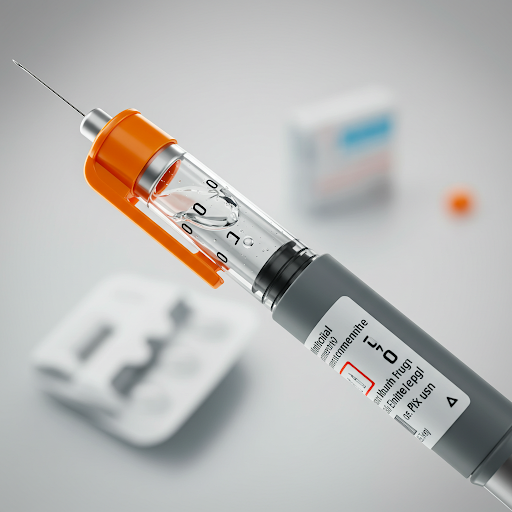Autoinjectors: Revolutionizing Drug Delivery for Chronic Conditions
Autoinjectors represent a significant advancement in drug delivery, particularly for patients managing chronic conditions. These devices offer a user-friendly and reliable method for self-administration, improving patient adherence and quality of life. This blog post delves into the history, necessity, reviews, key manufacturers, and price considerations of autoinjectors, aimed at providing valuable insights for medics and technologists.
medtechsolns
3/23/20253 min read


A Brief History:
The concept of automated injection emerged in the mid-20th century, driven by the need for rapid and reliable drug delivery in military settings. Early devices were often bulky and complex. However, advancements in engineering and materials science led to the development of more compact, user-friendly, and precise autoinjectors. The introduction of prefilled syringes and disposable devices marked a turning point, making self-administration a viable option for a wider patient population.
The Necessity for Autoinjectors:
Autoinjectors address several critical challenges in drug administration:
Improved Patient Adherence: Chronic conditions often require frequent injections. Autoinjectors simplify the process, reducing anxiety and increasing adherence to prescribed treatment regimens.
Enhanced Safety: These devices minimize the risk of needle-stick injuries and ensure accurate dosing, reducing the potential for medication errors.
Reduced Pain and Anxiety: Automated injection mechanisms deliver medication quickly and smoothly, minimizing discomfort.
Convenience and Portability: Autoinjectors are designed for self-administration at any time and in any location, enhancing patient independence.
Precise Dosage: Many autoinjectors are designed to deliver a precise dose of medication, increasing the efficacy of the treatment.
Use Cases:
Autoinjectors are widely utilized in the treatment of various conditions, including:
Rheumatoid Arthritis: Medications like methotrexate and TNF inhibitors are commonly administered via autoinjectors.
Multiple Sclerosis: Interferon beta and glatiramer acetate are often delivered using these devices.
Diabetes: Insulin autoinjectors provide a convenient and accurate method for managing blood glucose levels.
Anaphylaxis: Epinephrine autoinjectors (e.g., EpiPen, Auvi-Q) are critical for emergency treatment of severe allergic reactions.
Migraine: Some migraine medications are now available in autoinjector formats.
Osteoporosis: Medications like denosumab can be administered via autoinjectors.
Key Manufacturers and Reviews:
Several manufacturers have established themselves as leaders in the autoinjector market:
BD (Becton, Dickinson and Company): Known for their robust and reliable injection systems, BD offers a range of autoinjectors designed for various applications. They have extensive experience in prefillable syringe technology.
SHL Medical: SHL Medical is a major player in the design, development, and manufacturing of advanced drug delivery devices, including autoinjectors. Their devices are often highly customizable and user-friendly.
Ypsomed: Ypsomed specializes in self-injection systems, including autoinjectors for various therapeutic areas. They are known for their innovative designs and focus on patient comfort.
Mylan (now Viatris): Primarily known for the EpiPen, Mylan has a significant presence in the emergency medication delivery space.
Sanofi: Sanofi produces many autoinjectors for their own medications, for conditions like multiple sclerosis, and diabetes.
Reviews and Considerations:
User-Friendliness: Devices with clear instructions, ergonomic designs, and audible/visual feedback are highly rated.
Reliability: Consistent and accurate drug delivery is crucial. Devices with robust mechanisms and minimal failure rates are preferred.
Safety Features: Needle shielding, dose confirmation indicators, and safety locks are essential for minimizing risks.
Customization: The ability to adjust needle length, injection speed, and other parameters can enhance patient comfort.
Patient feedback: Patient feedback is essential for determining device effectiveness. Reviews can often be found on medical websites, and within patient support groups.
Price Guide:
The cost of autoinjectors varies significantly depending on the manufacturer, device complexity, and medication. Here's a general price guide:
Epinephrine Autoinjectors (e.g., EpiPen, Auvi-Q): Prices can range from $100 to $600+ per two-pack, depending on insurance coverage and pharmacy pricing.
Rheumatoid Arthritis/Multiple Sclerosis Autoinjectors: These devices are often included in the cost of the medication, which can range from several hundred to thousands of dollars per month.
Insulin Autoinjectors (Pens): The cost of insulin pens varies depending on the insulin type and brand, ranging from $50 to $300+ per pen.
Device only cost: empty autoinjector devices, for pharmaceutical filling can range from $10 to $50 per unit, when purchased in bulk.
Important Note: These prices are estimates and may vary. Patients should consult with their healthcare providers and insurance companies for accurate pricing information.
Conclusion:
Autoinjectors have transformed the landscape of chronic disease management, offering patients a safe, convenient, and reliable method for self-administration. As technology continues to advance, we can expect further improvements in device design, functionality, and affordability. Medics and technologists must stay informed about the latest developments in autoinjector technology to ensure optimal patient outcomes.
